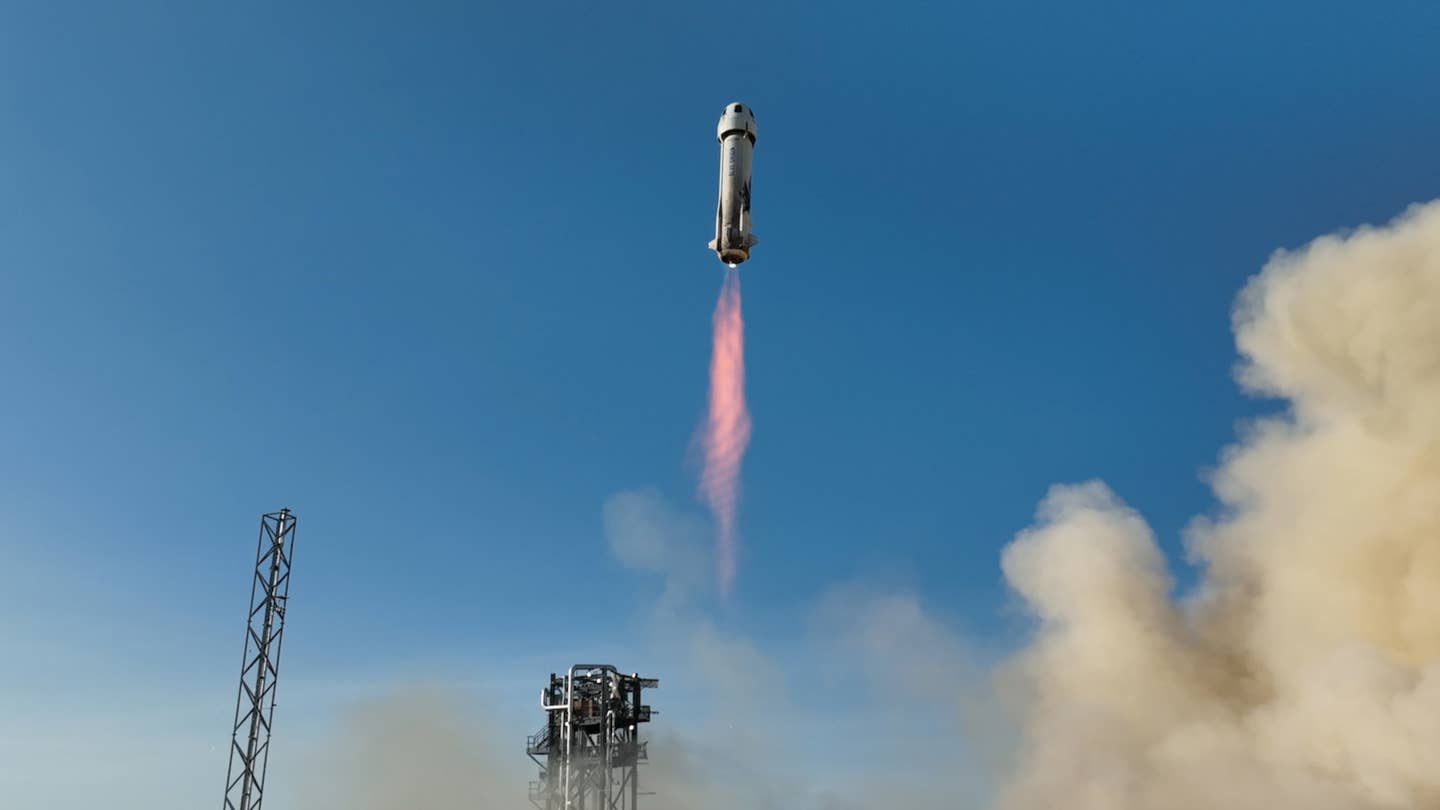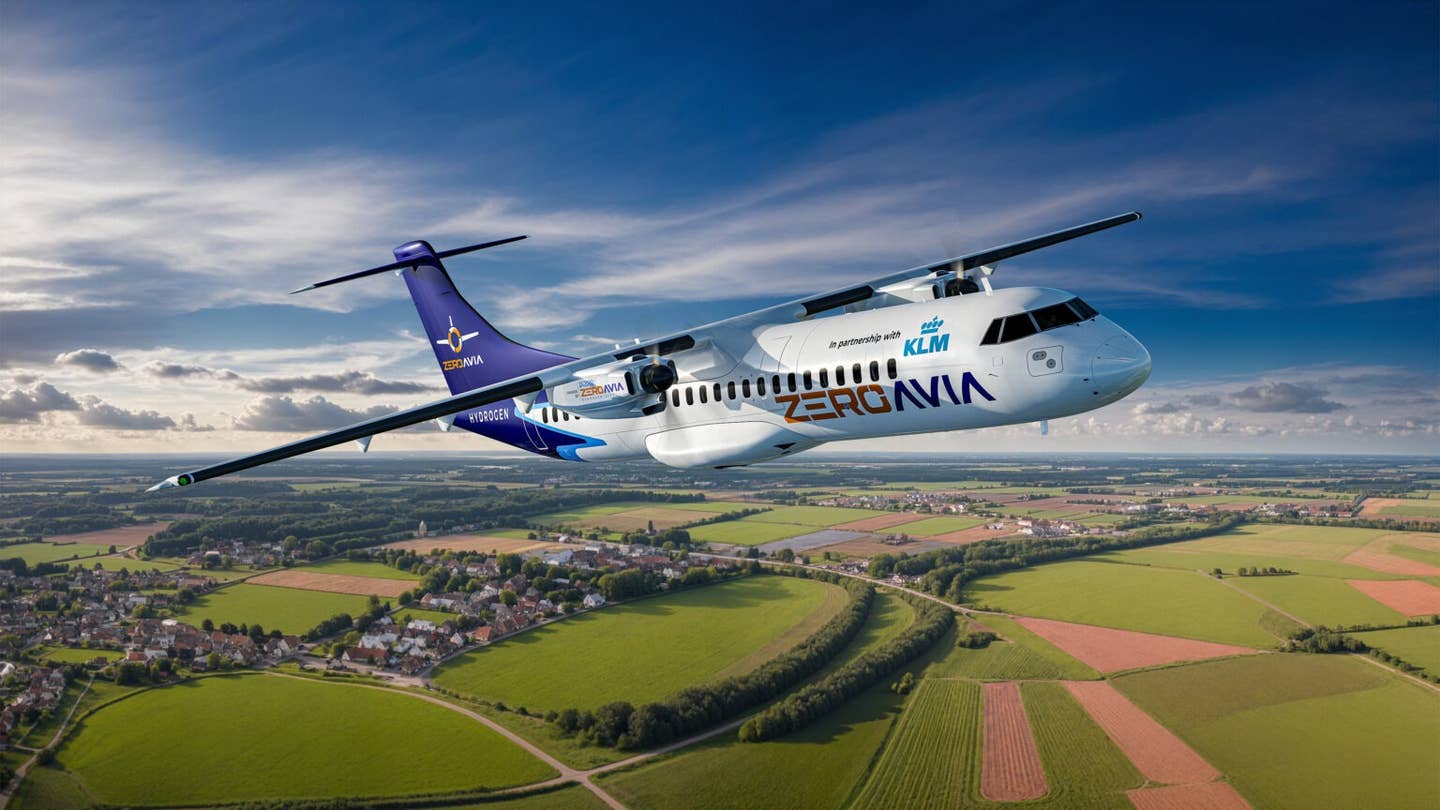Blue Origin’s New Shepard Rocket Set for Return to Action Next Week
The space tourism firm could fly a cargo mission as soon as Monday as it seeks to get back into the commercial space race.

Blue Origin’s New Shepard lifts off for the NS-22 mission on August 4, 2022. [Courtesy: Blue Origin]
Whether you view it as a small step for the 1 percent or a giant leap for all mankind, commercial space travel has arrived. And the race for the industry’s pole position is heating up.
Blue Origin, the space tourism venture of billionaire ex-Amazon CEO Jeff Bezos, announced on X, formerly Twitter, that the company’s New Shepard rocket could fly again as soon as Monday. New Shepard had been grounded by the FAA following the crash of an uncrewed escape capsule in September 2022.
The company said it’s targeting a launch window for its next New Shepard payload mission that will open December 18. The mission, NS-24, will carry cargo in the form of science and research materials and 38,000 Club for the Future postcards—a similar payload to NS-23, the mission that failed.
In a statement earlier this year, Blue Origin identified a faulty engine nozzle as the culprit of the September 2022 mishap. Both the company and the FAA reported no injuries or damage from the incident, which occurred just over one minute into the flight. Seconds later, New Shepard’s crew capsule escaped as designed.
It’s unclear whether the capsule’s retro thrust system—which is designed to enable a soft landing—fired as intended. But Blue Origin said the capsule and all payloads “landed safely” and that they would fly again on the next mission.
That flight was expected to take place a few weeks or months later. But an FAA mishap investigation—which is standard when a launch does not go as planned—kept New Shepard grounded for more than a year until it concluded in September. As part of that investigation, the regulator required Blue Origin to take several corrective actions.
Now, it appears the company is satisfied with the changes and ready to fly again. It will still need the FAA to sign off on its launch window. But that process can happen fast, as evidenced by the rapid turnaround achieved by SpaceX for the second test flight of its Starship rocket.
While Blue Origin has been tweaking and tinkering, its main rival, Richard Branson’s Virgin Galactic, appears to have leapfrogged the company in its bid for space tourism supremacy. Virgin completed its first commercial spaceflight in June and has flown to the edge of the atmosphere every month since, carrying both cargo and passengers.
Still, Blue Origin has a head start. Bezos’ company made a handful of commercial spaceflights in 2021 and 2022, ferrying high-profile passengers like Star Trek icon William Shatner and NFL Hall of Famer Michael Strahan. So while the year-plus hiatus may have put it in the hole, Blue Origin remains one of the only companies to actually fly paying customers to space.
Meanwhile, Blue Origin’s New Glenn rocket, which was originally expected to debut in 2020, may have a shot at launching next year. The company has also been contracted for several NASA missions—including to the moon and Mars—and is developing the Orbital Reef commercial space station.
Like this story? We think you'll also like the Future of FLYING newsletter sent every Thursday afternoon. Sign up now.

Subscribe to Our Newsletter
Get the latest FLYING stories delivered directly to your inbox






